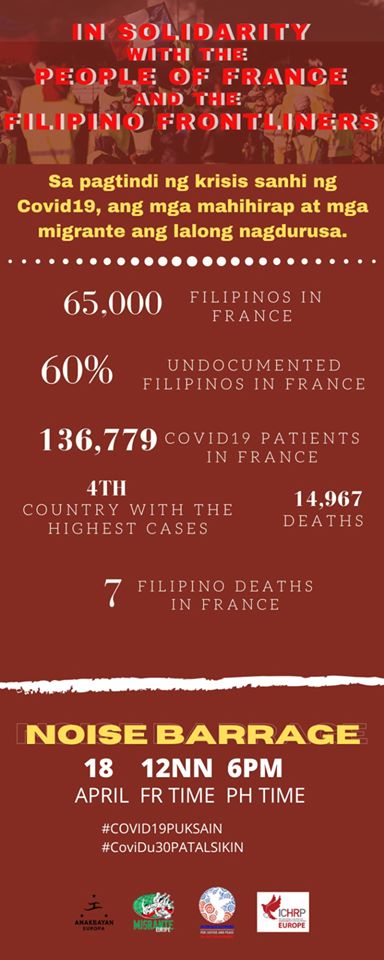Duterte now a known dictator with EU Parliament vote, rights group says
President Rodrigo Duterte is now known as a dictator by the international community after the European Parliament passed a resolution last September 17 condemning widespread human rights violations in the Philippines, an international rights group said.
The International Coalition for Human Rights in the Philippines (ICHRP) said Duterte has become a globally notorious dictator whose four-year reign has greatly surpassed the late dictator Ferdinand Marcos in the number of civilians killed by his government.
“With the strong resolution from the EU Parliament, the Duterte government has now gained notoriety as a world-known human rights violator, if not, a dictator following the likes of Ferdinand Marcos,” ICHRP said in a statement.
More than 3,000 were killed, 34,000 were tortured, 70,000 were imprisoned and billions of public funds were stolen by the Marcos regime.
Duterte’s long list of violations
The European Parliament said at least 8,663 people had been killed by the Philippine National Police through a “widespread and systematic” anti-drug campaign by the Duterte government.
The resolution said that Duterte himself explicitly encouraged the police to commit extrajudicial execution and promised them immunity and promotions.
Majority of the victims were from poor and marginalized communities, the measure added, quoting a June 2020 report by the United Nations High Commissioner for Human Rights.
The resolution also listed the following human rights violations committed by the government:
-threats, harassment, intimidation and violence against human rights defenders, journalists and activists, equating their advocacy with insurgency;
-conviction of Rappler’s Maria Resa and Reynaldo Santos for cyberlibel and the denial of the renewal of ABS-CBN’s franchise;
-imprisonment of Senator Leila de Lima;
-killing of at least 43 land rights defenders;
-criminalization and attacks against indigenous human rights defenders;
-killing of human rights defender Zara Alvarez and peace advocate Randall Echanis;
-assassination of at least 16 journalists and a pattern of intimidation of independent news sources;
-Duterte’s withdrawal from the International Criminal Court;
-Congress’ approval of the death penalty measure and adoption of a new anti-terrorism law;
-Duterte’s repeated sexist and misogynistic speech and behavior;
-endangerment of workers’ rights advocates;
-Duterte’s repeated reference to political opponents’ sexual orientation as a smear against them and implying that homosexuality is a disease;
-victimization of up to 100,000 children in prostitution rings and child labor; and
-government’s failure to curb corruption.
The European Parliament resolution said it proactively supports the adoption of a resolution at the ongoing 45th session of the United Nations Human Rights Council to establish an international investigation into human rights violations committed under the Duterte government.
The measure also recommended to the European Union (EU) to temporarily withdraw the Philippines’ Generalized Scheme of Preferences Plus status that provides tariff perks for Filipino goods until the Duterte government “immediately carry out impartial, transparent, independent and meaningful investigations into all extrajudicial killings.”
The resolution was adopted with 626 votes in favor, seven against, and 52 abstentions.
Allies of Duterte however dared Europe to go ahead with its sanctions and vowed reprisals in the future.
“No more discussions. They should do what they want to do during this time. If they want to implement it, go ahead,” presidential spokesperson Harry Roque said.
“I’m sorry. I’m being very undiplomatic in my answer, but what else can I say? At the time of a pandemic, they’re threatening us. Susmaryosep, what else do we lose?” Roque added.
Philippine House of Representatives Speaker Alan Peter Cayetano for his part said the European Parliament’s resolution is an interference in the “country’s domestic issues.”
“The Philippine House of Representatives takes exception to the outright interference of the European Parliament in the purely domestic matters of the Philippines by dictating on the government ‘to renew the broadcast license’ of ABS-CBN and to ‘drop’ the Cyberlibel charges against Maria Ressa,” Cayetano said in a statement.
“To our friends in the European Parliament, we have a saying here in the Philippines that the world is round. The day will come – mark my words – that the Philippines will be in a position to impose economic sanctions on your countries,” he said.
A bill seeking to block United States (US) assistance to the Philippine police and military, including equipment and training, “until human rights conditions are met,” has also been submitted by 19 US House of Representatives members last week.
Duterte’s de facto martial law
ICHRP said it welcomes the resolution by the legislative branch of the European Union it said is a damning indictment of the human rights crisis in the Philippines.
“The demands for justice for those slain in the drug war, the killings of activists, attacks on press freedom have all gained international condemnation. It is an attestation that the world no longer tolerates this repressive government. Duterte and his dictator government will be made accountable,” ICHRP chairperson Peter Murphy said.
“President Duterte with his ‘de facto’ Martial Law in place and the continuing repression in the country has found himself increasingly isolated in the international community. Cut from the same cloth as that of the late dictator Ferdinand Marcos, Duterte is now synonymous with killings and human rights atrocity,” Murphy added. # (Raymund B. Villanueva)

